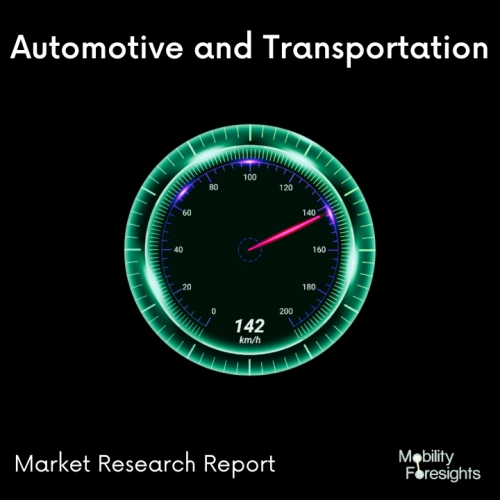
- Get in Touch with Us

Last Updated: Apr 25, 2025 | Study Period: 2024-2030
Minivan Commercial Electric vehicles are small-sized vans with electric motors that utilise battery technology for propulsion. They are also referred to as electric mini-vans or electric mini-commercial vehicles.
In comparison to conventional internal combustion engine vans, these vehicles are made to accommodate urban or short-distance commercial activities. They are mostly utilised for last-mile logistics, delivery services, and other urban transportation requirements.
Electric mini-commercial vans frequently have the following characteristics:
Mini-commercial vans are smaller and more compact than full-size vans in terms of size. They are built with the ability to move swiftly through congested streets and other urban environments.
Despite having a lower overall dimension, mini-commercial vans are built to have a respectable payload capacity to transport cargo or merchandise. Depending on the particular type and configuration of the vehicle, the payload capacity varies.
Range: Although electric mini-commercial vans have a range that can vary, they are mainly designed for short-distance or urban operations. The range is influenced by a number of variables, including battery size, vehicle efficiency, road conditions, and cargo weight.
Charging Infrastructure: To recharge their batteries, mini-commercial vans often rely on charging infrastructure. Depending on the capabilities of the car, they can be charged using a variety of techniques, such as conventional AC charging stations or faster DC fast-charging stations.
Features and Configurations: Mini-commercial vehicles frequently have features designed to fulfil business demands. To help with logistics and fleet management, these can include cargo management systems, separation walls, shelf alternatives, and connectivity elements.
Benefits for the environment include reduced local air pollution and greenhouse gas emissions due to electric mini-commercial vans' zero exhaust emissions. They aid in achieving sustainability objectives and bettering urban air quality.
Electric mini-commercial vans are available from a number of automakers, including both well-known brands and up-and-coming brands. Electric mini-commercial vans like the Nissan e-NV200, Renault Kangoo Z.E, Volkswagen e-Caddy, and Mercedes-Benz eVito are some of the most well-known models.
It's crucial to remember that depending on the area and market, certain models could not be readily available.
The market for electric mini-commercial vans is constantly changing as a result of advancements in technology and rising demand for sustainable urban transportation options.

The Global Mini-commercial Van Electric Vehicles market accounted for $XX Billion in 2023 and is anticipated to reach $XX Billion by 2030, registering a CAGR of XX% from 2024 to 2030.
Mini-commercial van electric vehicle (BEV) prototypes with a jointly created BEV system will be unveiled by Suzuki Motor Corporation (Suzuki), Daihatsu Motor Co., Ltd. (Daihatsu), and Toyota Motor Corporation (Toyota).
The announcement will be made during an exposition event showcasing the auto industry's initiatives to become carbon neutral (CN).
The three firms collaborated to develop a BEV system appropriate for mini-commercial vehicles by fusing Toyota's electrification technology with Suzuki and Daihatsu's experience in building small-size cars.
Within fiscal 2023, Suzuki, Daihatsu, and Toyota will all introduce their own versions of the vehicles, which will be manufactured by Daihatsu. In order to attain the ideal requirements for effective last-mile logistics, Commercial Japan Partnership Technologies Corporation (CJPT) also took part in the planning process.
Development is presently underway with the goal of producing a vehicle that can completely meet the expectations of clients in the delivery industry. The cruising range on a single charge is anticipated to be around 200 kilometres.
By offering environmentally friendly modes of transportation, the three businesses Suzuki, Daihatsu, and Toyota will continue to support efforts to attain CN.
In the spring of 2024, Honda will start offering small commercial electric vans: In a drive to electrify its vehicle lines, Honda Motor Co. announced on Wednesday that it would start offering micro-sized commercial electric vans in the spring of 2024.
In an effort to capitalise on the country's distinctive automobile size and the pressure to reduce its carbon footprint, Japanese automakers are using small commercial trucks as one strategy to increase the popularity of battery electric vehicles (BEVs) in the nation.
BEVs made up barely 1% of the passenger cars sold in Japan last year, and gasoline-electric hybrid types are still significantly more popular there.
Even so, the auto industry believes that tiny commercial vehicles are essential to the country's BEV adoption because 40% of the vehicles on the road are "kei" or microcars and because investors are pressuring companies to lower their carbon footprints.
| Sl no | Topic |
| 1 | Market Segmentation |
| 2 | Scope of the report |
| 3 | Abbreviations |
| 4 | Research Methodology |
| 5 | Executive Summary |
| 6 | Introduction |
| 7 | Insights from Industry stakeholders |
| 8 | Cost breakdown of Product by sub-components and average profit margin |
| 9 | Disruptive innovation in the Industry |
| 10 | Technology trends in the Industry |
| 11 | Consumer trends in the industry |
| 12 | Recent Production Milestones |
| 13 | Component Manufacturing in US, EU and China |
| 14 | COVID-19 impact on overall market |
| 15 | COVID-19 impact on Production of components |
| 16 | COVID-19 impact on Point of sale |
| 17 | Market Segmentation, Dynamics and Forecast by Geography, 2024-2030 |
| 18 | Market Segmentation, Dynamics and Forecast by Product Type, 2024-2030 |
| 19 | Market Segmentation, Dynamics and Forecast by Application, 2024-2030 |
| 20 | Market Segmentation, Dynamics and Forecast by End use, 2024-2030 |
| 21 | Product installation rate by OEM, 2023 |
| 22 | Incline/Decline in Average B-2-B selling price in past 5 years |
| 23 | Competition from substitute products |
| 24 | Gross margin and average profitability of suppliers |
| 25 | New product development in past 12 months |
| 26 | M&A in past 12 months |
| 27 | Growth strategy of leading players |
| 28 | Market share of vendors, 2023 |
| 29 | Company Profiles |
| 30 | Unmet needs and opportunity for new suppliers |
| 31 | Conclusion |
| 32 | Appendix |